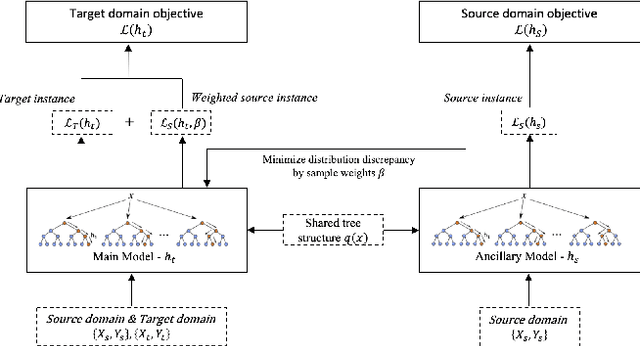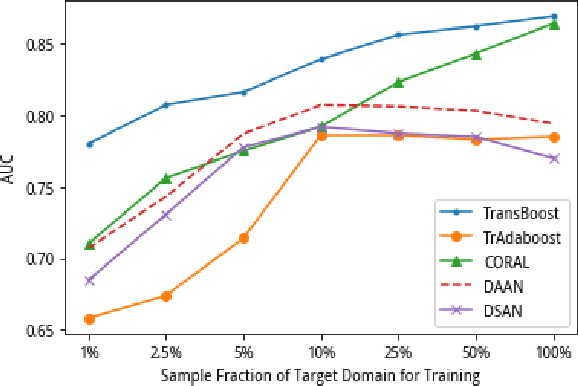TransBoost: A Boosting-Tree Kernel Transfer Learning Algorithm for Improving Financial Inclusion
Paper and Code
Dec 16, 2021



The prosperity of mobile and financial technologies has bred and expanded various kinds of financial products to a broader scope of people, which contributes to advocating financial inclusion. It has non-trivial social benefits of diminishing financial inequality. However, the technical challenges in individual financial risk evaluation caused by the distinct characteristic distribution and limited credit history of new users, as well as the inexperience of newly-entered companies in handling complex data and obtaining accurate labels, impede further promoting financial inclusion. To tackle these challenges, this paper develops a novel transfer learning algorithm (i.e., TransBoost) that combines the merits of tree-based models and kernel methods. The TransBoost is designed with a parallel tree structure and efficient weights updating mechanism with theoretical guarantee, which enables it to excel in tackling real-world data with high dimensional features and sparsity in $O(n)$ time complexity. We conduct extensive experiments on two public datasets and a unique large-scale dataset from Tencent Mobile Payment. The results show that the TransBoost outperforms other state-of-the-art benchmark transfer learning algorithms in terms of prediction accuracy with superior efficiency, shows stronger robustness to data sparsity, and provides meaningful model interpretation. Besides, given a financial risk level, the TransBoost enables financial service providers to serve the largest number of users including those who would otherwise be excluded by other algorithms. That is, the TransBoost improves financial inclusion.
 Add to Chrome
Add to Chrome Add to Firefox
Add to Firefox Add to Edge
Add to Edge